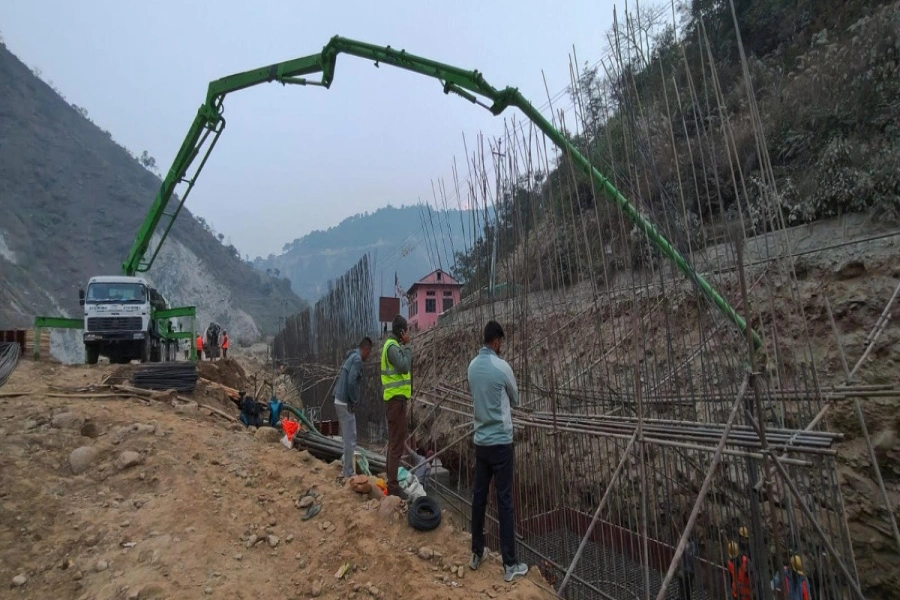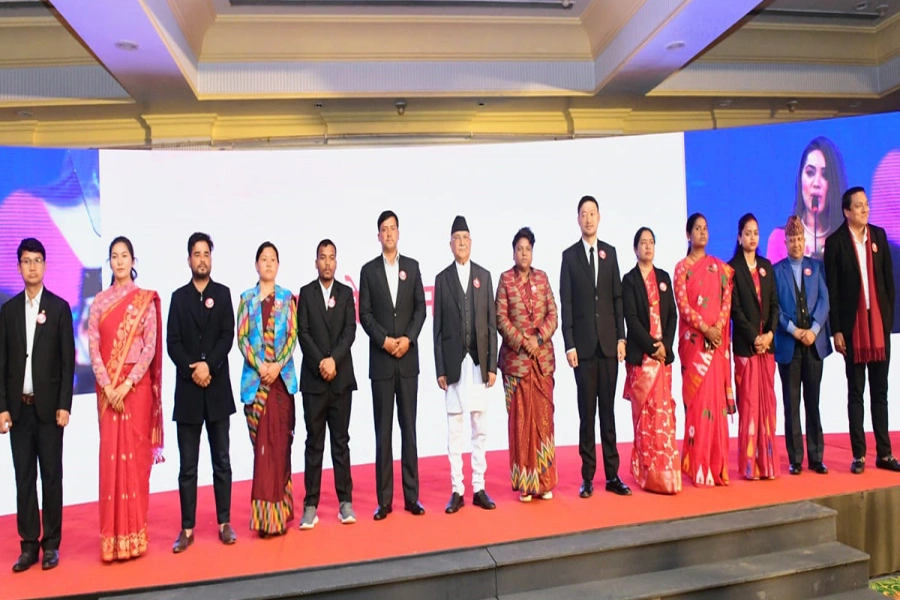An international corporate leadership trainer, Neeva Mathema Pradhan is associated with The Art of Living Foundation. After working in the banking industry for 15 years, she became the vice president for Federal Credit Union, USA. She holds a master’s degree in management science from the Florida Institute of Technology USA, and has authored a book ‘The Best of Both Worlds: A Pioneer’s Perspective in Straddling East and West’.
An Art of Living practitioner herself for ten years now, she conducts stress management trainings and corporate workshops in the US and Nepal. As a trainer with The Art of Living, she along with her team conducted training for 65 institutions in and outside Kathmandu in 2017.
In an interview with My City’s Sonam Lama, Pradhan shared her experience and setbacks that she witnessed on her professional journey.
‘Awareness among people on heart diseases has improved in Nepal...

What challenges did you initially witness on your journey?
Before being a practitioner, I had a tough time maintaining a right balance between my work, family and social life. As everything demanded equal priority, it was quite stressful to have your mind stuffed with many thoughts at a time. However, after I took the training myself I realized back then that I was not aware of the technique to de-stress. It was after i dedicated much of my time taking up the training that my awareness level increased which gradually started affecting my daily living.
How can diverse people having different personalities and traits benefit from the trainings that you conduct?
There is no doubt that people come with different personalities. Rather than a motivational leadership, this leadership training is more of an inspirational leadership. It is more about how to inspire people by whoever they are. A sense of belongingness is what we talk about in our sessions. The relationship between cultivating a sense of belongingness and taking responsibility is highly interconnected. When you start feeling more belongingness you make yourself prepared to take responsibility and act upon it. This is the sign of a growth mindset and even if you are a quiet person or an extrovert, this technique which begins with Sudarshan Kriya is beneficial to learn the science of breathing, to cultivate the expanded sense of belongingness simultaneously inculcating your mind with positive thoughts.
How does the practice of Sudarshan Kriya work?
Surdarshan Kriya is a process of eliminating negative emotions and feelings through the art of breathing. The functioning of oxygen is crucial in order to enhance our physical and psychological well-being. Due to stressed and unhealthy lifestyle, our breathing process gets affected resulting in the lack of adequate oxygen supply to the brain. Thus, this practice opens up the chest cavity replenishing oxygen to our brain. Moreover, as you keep growing, your responsibility keeps increasing and when you can’t find a balance between your energy level and your responsibility, that’s when stress starts triggering. This practice helps the energy level to be brought up to the level of responsibility. Moreover, stress is also caused by over active mind that generates unproductive thoughts. With more of this practice it helps tranquilize the over-active state of mind. Thus, the whole technique is about learning to de-stress while keeping your mind in the present moment.
How has the concept of meditation changed over the decades?
I believe meditation and yoga have been prioritized in today’s context. The definition of meditation has grown much than the time when I had started. With social media reaching out to a wide array of people and they being aware about how mental health constitutes to maintaining sound well-being, meditation and yoga have been a part of peoples’ daily living. Furthermore, with media and celebrities following suit, I believe the practice is impacting larger demographic in a greater extent as youths in the western societies are deeply into the ancient philosophy of mediation. With an improved awareness, the scenario is also progressing in Nepal.
What elements does the training specially focus on?
Mind always wants to hold on to negative emotions and that’s importance to be aware of. We have learnt to hold tight on unpleasant feelings and this practice is about learning to let go. We call it a journey from head to heart as when you are practicing, it gradually becomes part of your system. From teaching the art of breathing to maintaining a balanced diet, we also talk about the 7 levels of existence which is realized through body, breath, mind, memory, intellect, ego and the self. All the activities that a person does are drawn out of the responsive reaction of these 7 levels of existence. While all the activities are carried out through these levels with their independent functioning, the self is only considered as the silent observer. Likewise, our five senses take us to outward but nothing brings us back to our self. Therefore, the journey is allowing oneself to meet with the self.








































